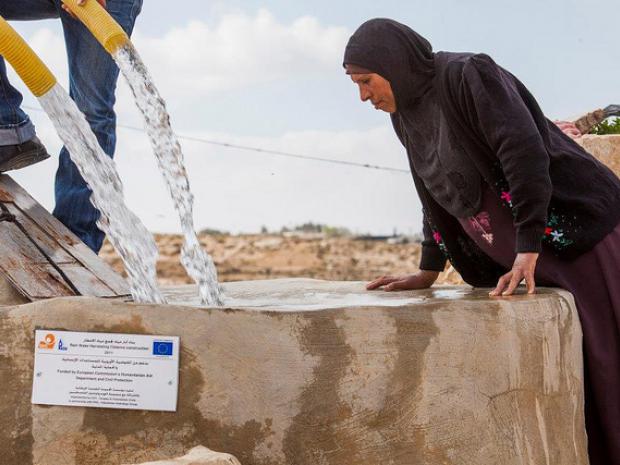Palestine
Introduction
Palestine is a sui generis case for aid delivery and cooperation, due notably to the occupation and the

source: EC
fragmentation of the territory. Efficiency and performance of EU development cooperation continue to be challenged by the Israeli occupation of Palestine.
In line with the Palestinian authorities' priorities, the Agenda for change, the ENP JAP, as well as building on previous EU support and according to local division of labour, the EU support to Palestine will focus on three focal sectors, namely: Support to governance at local and national levels; Support to the private sector and sustainable economic development; and Support to water and land development. (for the full document clik here)
Focus Sectors budget
|
Indicative allocation 2014-2020 |
EUR 1833 million/EUR 2241 million |
|
Breakdown for the 1st period |
|
|
Support to Governance at Local and National Levels |
5% |
|
Support to Private Sector and Sustainable Economic |
5% |
|
Development Support to Water and Land Development |
5% |
|
Support to Civil Society will be provided under focal sector 1 |
N.A. |
|
Temporary Support Measures |
|
|
PEGASE (Mécanisme Palestino-Européen de Gestion et d'Aide Socio-Economique) |
55% |
|
East Jerusalem Programme |
<5% |
|
Support to UNRWA (United Nations Relief and Works Agency) |
25% |
Water

source: EC
Overall objectives
The overall objective of the Development Support to Water and Land Sector is to contribute to the improvement of the socio-economic situation of the vulnerable population in Palestine – with a particular focus on Area C – while bridging emergency to environmental sustainable development.
Country Context
Palestinians living in the West Bank have very limited access to water. Due to Israeli restrictions, they currently exploit 20% of the groundwater resources, while the remaining 80% are for exclusive Israeli use (including illegal settlements). Very few Palestinians are also connected to a sewerage collection network (70% of the West Bank population). Several environmental and human health risks emerge from this lack of wastewater treatment, combined with a high population growth (in the Gaza Strip, 90% of the water provided to the population is not suitable for drinking purposes because of high nitrate and chloride concentrations). Support in the water sector will address the lack of basic rights to access water (including drinking water), and will therefore not be limited to infrastructural projects but could target as well the restructuring of the water sector and water research (recycling and desalination). As water scarcity is exacerbated by the occupation (mostly demonstrated in the asymmetric functioning of the Israeli Palestinian Joint Water Committee), a stronger political support in water-related issues will be required, including the related energy supply needs.
In view of the phasing out of Food Security Thematic Programme (FSTP) the shift to "water and land development", will also ensure continuity in what was achieved by the FSTP-funded programmes addressing agriculture constraints. The future interventions in the sector will take stock of the main recommendations stemming from the ended and on-going projects and from the Guidelines for Land and Water Development Interventions.

source: EC
Specific objectives and the main expected results
SO1 - Enhance the access to and the sustainable utilisation of land and water resources (including the treatment of wastewater and the re-use of the treated wastewater)
- R.1. The management, coordination capacities of the Palestinian Water Authority are developed, a separated regulation entity is supported and decentralised institutions are reinforced;
- R.2. The provision of equitable, reliable and safe water supply and wastewater services to the Palestinian population and the development of water re-use schemes is enhanced;
- R.3. An environment conducive to private investment is created;
- R.4. Capacities of all bodies related to land and water issues is enhance;
- R.5. Access to and the sustainable utilisation of land and water resources are enhanced;
SO2 - Support Palestinian presence in Area C, protect Palestinian land from confiscation and ensure continuity of land
- R.1. The planning process by Palestinian communities in Area C is supported.
